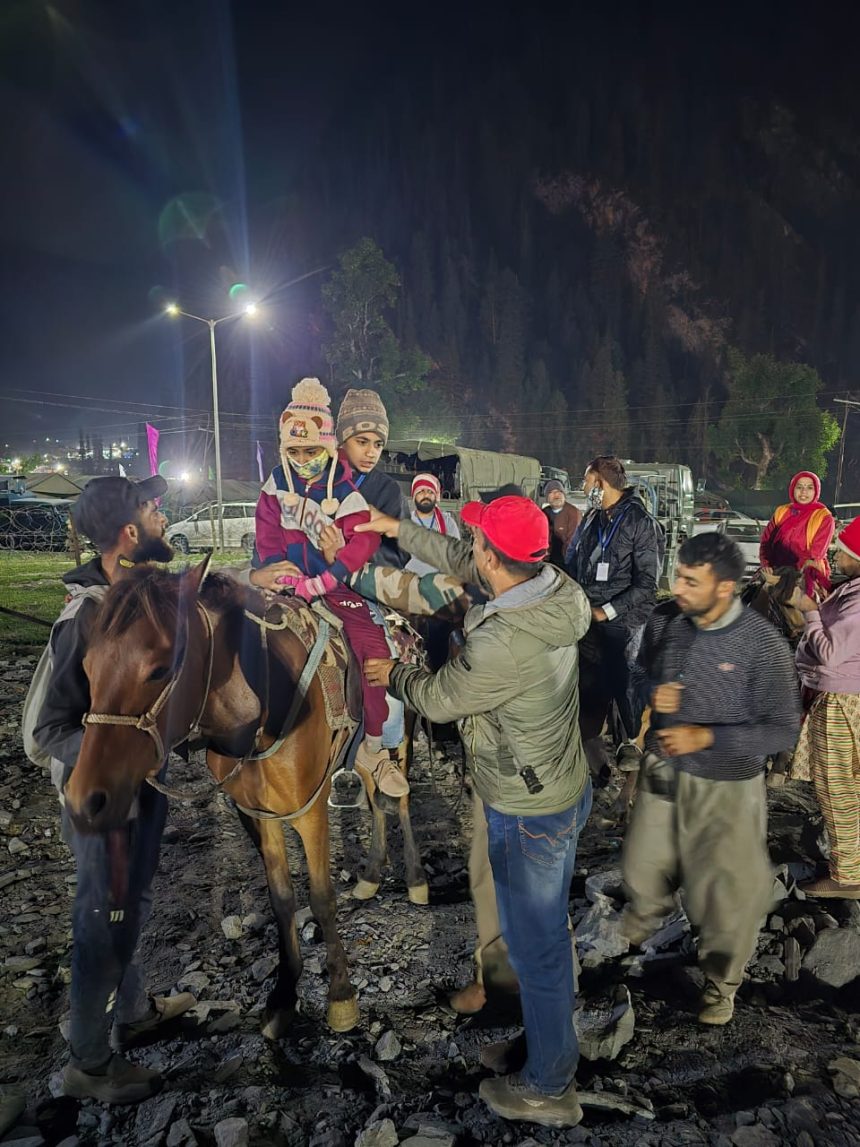Ganderbal, July 06: The Amarnath Yatra stands as a shining example of religious harmony in India. The Amarnath cave, covered with snow for most of the year, holds a sacred place in Hinduism as the abode of Lord Shiva.
Every year, thousands of Kashmiri Muslims play a crucial role in facilitating this pilgrimage. Wearing traditional long woolen coats, they clear paths, provide palanquins, horses, and tents, and carry the pilgrims’ belongings. This year, the Yatra commenced on June 29, and the local population in Baltal, Central Kashmir, is visibly joyous.
Community kitchens have been established to cater to the pilgrims, and the sight of Muslims carrying yatris on their shoulders to help them complete the 14km trek to the holy cave is a testament to Kashmir’s syncretic culture.
Every year, thousands of Kashmiris receive permits from the Labour Department to participate in business activities related to the Yatra. The local Muslims, standing shoulder to shoulder with the pilgrims, ensure a smooth journey to the sacred site.
The Forest Protection Force is also playing a vital role in managing the Yatra, overseeing pony stands, prepaid ticket counters, and ensuring proper ticket checking to facilitate a seamless pilgrimage.
An official from the Forest Protection Force mentioned that this year’s Yatra would provide significant employment opportunities for local workers, further enhancing the economic benefits for the region.
“We are here to assist our pilgrim guests in every possible way,” the official stated, highlighting the spirit of cooperation and unity that defines the Amarnath Yatra.
Over 50,000 pilgrims from different parts of the country paid obeisance at the holy cave of Shri Amarnath Ji in the first three days of the pilgrimage, which started from the twin tracks of Baltal and Nunwan-Pahalgam on June 29.









